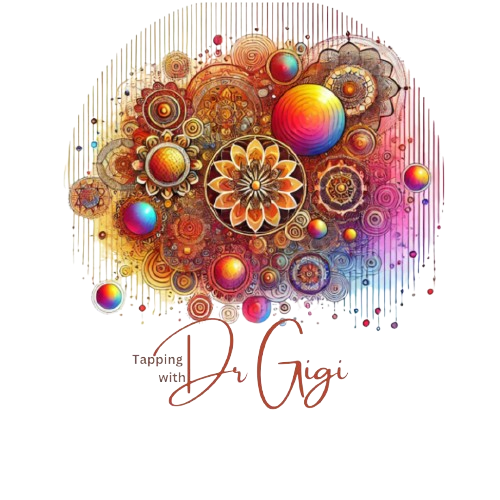Anxiety is a pervasive issue affecting millions of people globally, leading to both mental and physical health challenges. The modern world’s pressures, from work to personal relationships, are often compounded by the constant influx of digital information, heightening stress levels. While traditional therapies and medications provide relief for many, alternative approaches like Emotional Freedom Techniques (EFT), also known as Tapping Therapy, have gained traction EFT Tapping for anxiety management.
EFT combines elements of exposure therapy, cognitive restructuring, and acupressure. It involves tapping on specific meridian points while focusing on negative emotions, helping to release blocked energy and restore emotional balance. Studies have widely supported EFT tapping’s effectiveness in reducing anxiety, depression, and stress. However, as powerful as EFT is, it can be even more effective when paired with complementary self-care strategies.
In this blog, we will explore various self-care strategies that can enhance the effectiveness of EFT Tapping, helping individuals better manage anxiety and promote holistic well-being.
Mindfulness Meditation
1) The Science Behind Mindfulness
Mindfulness meditation is the practice of being present in the moment without judgment. It involves paying attention to your thoughts, sensations, and environment, which can help break the cycle of negative thinking that often fuels anxiety. Mindfulness has been extensively researched, with studies showing it can reduce symptoms of anxiety, stress, and depression.
According to Harvard Medical School, mindfulness meditation reduces the body’s stress response by decreasing activity in the amygdala, the part of the brain responsible for fear and anxiety. When practised regularly, mindfulness can rewire neural pathways, making managing stress and maintaining emotional balance easier.
2) Combining Mindfulness with EFT Tapping
While EFT Tapping focuses on releasing emotional blockages, mindfulness helps cultivate a state of calm and non-reactivity to thoughts and emotions. By integrating mindfulness into your EFT practice, you can increase your awareness of the thoughts and feelings that trigger anxiety. Before tapping, take a few moments to practice mindfulness by focusing on your breath or performing a body scan. This can help centre your mind, making EFT more effective.
Deep Breathing Exercises
1) The Role of Breath in Managing Anxiety
Breath control is a powerful tool in managing anxiety, as breathing patterns directly influence the nervous system. Shallow or rapid breathing, often associated with anxiety, activates the sympathetic nervous system, triggering the body’s fight-or-flight response. On the other hand, deep, slow breathing stimulates the parasympathetic nervous system, which promotes relaxation.
Diaphragmatic breathing (also known as belly breathing) is one of the most effective breathing techniques for reducing anxiety. Engaging the diaphragm and breathing deeply into the belly activates the body’s natural relaxation response.
2) How to Combine Deep Breathing with EFT
Before or during an EFT Tapping session, incorporating deep breathing can help reduce tension and prepare the body for emotional release. Try the following sequence:
- Sit or lie down in a comfortable position.
- Close your eyes and take a deep breath through your nose, allowing your belly to expand.
- Hold your breath briefly, then slowly exhale through your mouth.
- Repeat this for 3–5 minutes, focusing on the rise and fall of your belly.
Once you’ve calmed your nervous system, proceed with your EFT Tapping session. You may find that the emotional intensity associated with your anxiety is reduced, allowing for deeper emotional release during tapping.
Journaling
1) Benefits of Journaling for Anxiety
Journaling is a highly effective way to process emotions and gain clarity about the sources of anxiety. By putting your thoughts and feelings on paper, you can externalize internal conflicts, making confronting and understanding them easier. Research has shown that expressive writing can help reduce symptoms of anxiety and depression, particularly when individuals write about their worries, fears, or stressors.
The American Psychological Association notes that journaling can improve emotional intelligence, foster self-awareness, and provide a constructive outlet for negative emotions.
2) Using Journaling with EFT Tapping
Journaling can serve as a preparatory or reflective tool to complement EFT tapping. Before tapping, take some time to journal about your current emotional state or specific anxiety triggers. This can help you focus your EFT session on the most pressing issues. After tapping, journaling about the experience can solidify the emotional shifts and breakthroughs you’ve achieved.
A simple approach is to use the “What, Why, and How” method:
- What: What are you feeling right now?
- Why: Why do you think you’re feeling this way?
- How: How can you change your perspective or approach to this emotion?
Combining journaling with EFT can deepen your understanding of your emotions and track your progress over time.
Physical Exercise
1) Exercise as a Natural Stress Reliever
Physical activity is one of the most effective natural remedies for anxiety. Exercise releases endorphins, chemicals in the brain that act as natural mood elevators. Regular physical activity also helps reduce cortisol, the stress hormone and can improve sleep quality, which is critical for managing anxiety.
A study published in The Lancet Psychiatry (2018) found that people who engage in regular physical activity experience significantly lower rates of depression and anxiety than those who are sedentary. Activities like walking, running, swimming, or yoga can provide immediate relief from anxiety symptoms and offer long-term benefits for emotional health.
2) Integrating Exercise with EFT
While EFT focuses on emotional release, exercise helps reduce physical tension. After a workout, your body is typically more relaxed, making it an ideal time for an EFT session. Whether you exercise before or after tapping, integrating both can create a powerful combination for managing anxiety.
Consider starting your day with a 20-30 minute exercise routine, followed by a brief EFT Tapping session. This can set a positive tone for the day, help manage anxiety, and maintain a balanced emotional state.
Nutrition and Hydration
1) The Connection Between Diet and Mental Health
Nutrition plays a vital role in mental health and anxiety management. Certain foods, depending on their nutritional content, can either trigger or alleviate anxiety symptoms. Foods rich in omega-3 fatty acids (such as salmon, flaxseeds, and walnuts), magnesium (found in spinach, almonds, and bananas), and antioxidants (present in berries, green tea, and dark chocolate) have been shown to improve mood and reduce anxiety.
On the other hand, excessive sugar, caffeine, and processed foods can exacerbate anxiety, leading to spikes in energy followed by crashes in mood and energy levels. Research published in the American Journal of Psychiatry highlights the significant impact of dietary patterns on mental health, emphasizing the importance of a balanced diet for managing anxiety.
2) Supporting EFT with Proper Nutrition
To complement your EFT practice:
- Focus on a diet rich in whole foods, healthy fats, and lean proteins.
- Stay hydrated throughout the day, as dehydration can worsen anxiety symptoms.
- Before a tapping session, ensure you’ve consumed a balanced meal or snack that supports stable blood sugar levels.
Incorporating herbal teas like chamomile or lavender can also enhance relaxation during or after EFT sessions. These teas are known for their calming properties and can further reduce anxiety.
Sleep Hygiene
1) The Importance of Sleep for Anxiety Management
Sleep is critical for mental health, and poor sleep can exacerbate anxiety. Sleep deprivation affects the brain’s ability to regulate emotions, increases cortisol levels, and reduces cognitive function, making it harder to cope with stressors. Studies have shown that individuals who experience chronic sleep problems are at higher risk for developing anxiety disorders.
The National Sleep Foundation recommends that adults get 7-9 hours of sleep per night to maintain optimal mental and physical health. Good sleep hygiene practices can significantly reduce anxiety symptoms and improve overall well-being.
2) EFT Tapping for Sleep and Anxiety
If anxiety affects your sleep, incorporating EFT Tapping into your bedtime routine can help calm the mind and prepare the body for rest. Focus on tapping points related to the stress or worry preventing you from falling asleep. You can also tap on feelings of restlessness or fear of insomnia.
Creating a pre-sleep routine that includes deep breathing, meditation, or reading can also help signal to your body that it’s time to wind down. EFT Tapping can be the final component of this routine, ensuring a restful night’s sleep.
Aromatherapy
1) How Scents Impact Mood and Anxiety
Aromatherapy, the use of essential oils to promote relaxation and well-being, has been shown to reduce symptoms of anxiety and stress. Scents such as lavender, bergamot, chamomile, and frankincense have calming effects that can soothe the nervous system and promote emotional balance.
A 2017 study published in Frontiers in Psychology found that participants who inhaled lavender essential oil experienced significant reductions in anxiety compared to those in the control group. Aromatherapy can influence the brain’s limbic system, which regulates emotions.
2) Using Aromatherapy with EFT
To enhance the calming effects of EFT Tapping, try diffusing essential oils during your session or applying a few drops of oil to your pulse points. The soothing scents can amplify the relaxation process and make the tapping experience more profound.
Consider using a diffuser in your living or workspace to create a calming atmosphere throughout the day. This can help you remain more centred and grounded, making it easier to manage anxiety triggers as they arise.
Social Support and Connection
1) The Role of Relationships in Managing Anxiety
Human beings are inherently social creatures, and maintaining positive relationships is essential for mental health. Studies have consistently shown that individuals with strong social support networks experience lower levels of anxiety and depression. Connection with others provides a sense of belonging and emotional security, which is crucial for managing stress.
A Harvard study on adult development found that close relationships are the most significant predictors of happiness and life satisfaction. On the other hand, social isolation can worsen anxiety and contribute to feelings of loneliness and despair.
2) EFT Tapping and Social Support
While EFT is typically practised individually, sharing your experience with a trusted friend or family can deepen the therapeutic process. You can also attend EFT workshops or join online support groups where others share their tapping journeys.
Having someone to talk to after an intense EFT session can provide additional emotional relief and validation. Human connection enhances the healing process and helps individuals feel less alone in their struggles with anxiety.
EFT Tapping is an incredibly powerful tool for managing anxiety, but its effectiveness can be amplified by integrating complementary self-care strategies. By incorporating mindfulness, deep breathing, journaling, exercise, proper nutrition, sleep hygiene, aromatherapy, and social support into your routine, you can create a holistic approach to anxiety management.
Each self-care practice works synergistically with EFT, helping balance the mind and body while promoting emotional healing. Whether new to EFT or have been practising for years, these strategies will help you navigate anxiety more effectively and improve your overall well-being. Remember, self-care is not a one-size-fits-all approach; experiment with different methods to discover what works best for you and your unique needs. As you continue on your journey to managing anxiety, be patient and compassionate with yourself. Healing is gradual, but you can lead a calmer, more fulfilling life with the right tools and support.

